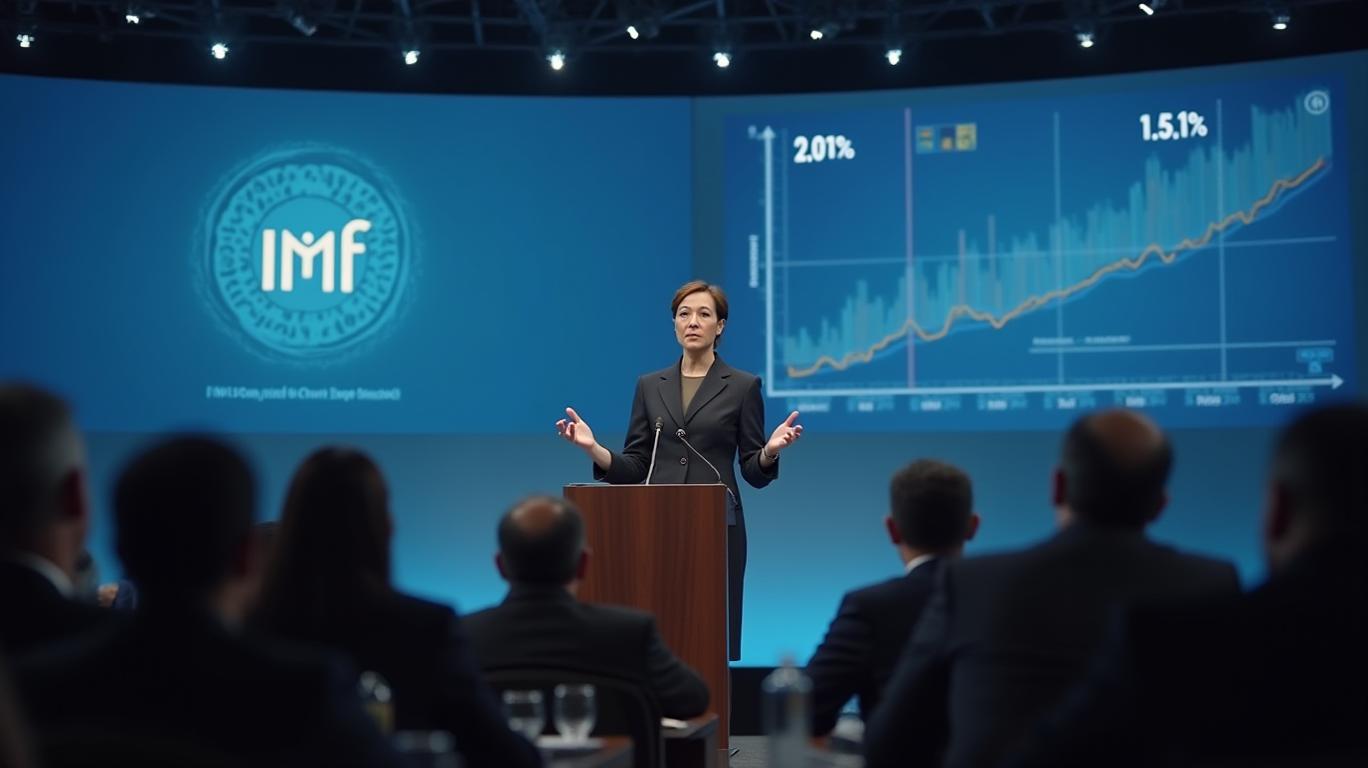IMF: AI to Boost Global Output by 0.5% Annually, Despite Carbon Concerns
The International Monetary Fund (IMF) has released a report indicating that the economic benefits derived from artificial intelligence (AI) could potentially surpass the costs associated with increased carbon emissions from data centers required to run AI models. The report, presented at the annual spring meeting in Washington, projects that AI could boost global output by approximately 0.5% annually between 2025 and 2030. This economic growth is expected to outweigh the environmental impact of the additional carbon emissions generated by the data centers necessary for AI operations.
The IMF's report, titled "Power Hungry: How AI Will Drive Energy Demand," emphasizes that while the additional carbon emissions are a concern, the economic benefits of AI are substantial. The report notes that the social costs of these emissions are relatively minor compared to the economic gains, but they still contribute to the growing problem of carbon accumulation. The IMF estimates that by 2030, the global electricity demand driven by AI could double to around 1,500 terawatt-hours (TWh), which is roughly equivalent to India's current electricity consumption and 1.5 times higher than the expected electricity consumption of electric vehicles during the same period.
The report highlights that the carbon footprint of this increased energy demand will depend on the ability of technology companies to fulfill their commitments to reduce carbon emissions through the use of renewable energy and other sustainable practices. The IMF estimates that under current energy policies, the widespread application of AI could lead to a cumulative increase in global greenhouse gas emissions of 1.2% between 2025 and 2030. However, more environmentally friendly energy policies could limit this increase to 1.3 billion tons.
The IMF quantifies the social cost of these emissions at $39 per ton, resulting in additional costs ranging from $50.7 billion to $66.3 billion. This is significantly less than the potential annual increase in global GDP of 0.5 percentage points that AI could bring. The report underscores the importance of policy interventions to ensure that the benefits of AI are distributed equitably and that its environmental impact is minimized. The IMF calls on policymakers and businesses to work together to address the challenges posed by AI, including the need for more sustainable energy practices and the potential for AI to drive innovation in low-carbon technologies.
Independent analysts have noted that the impact of AI on the economy and the environment will largely depend on how it is used. If AI can accelerate the development of low-carbon technologies in sectors such as electricity, food, and transportation, it could potentially lead to a reduction in overall carbon emissions. However, market forces alone are unlikely to drive these changes effectively. Government, technology companies, and energy firms must play an active role in ensuring that AI is used in a purposeful, fair, and sustainable manner. This includes investing in research and development, as well as implementing policies that address the inequalities exacerbated by AI advancements.

Stay ahead with real-time Wall Street scoops.
Latest Articles
Stay ahead of the market.
Get curated U.S. market news, insights and key dates delivered to your inbox.



Comments
No comments yet